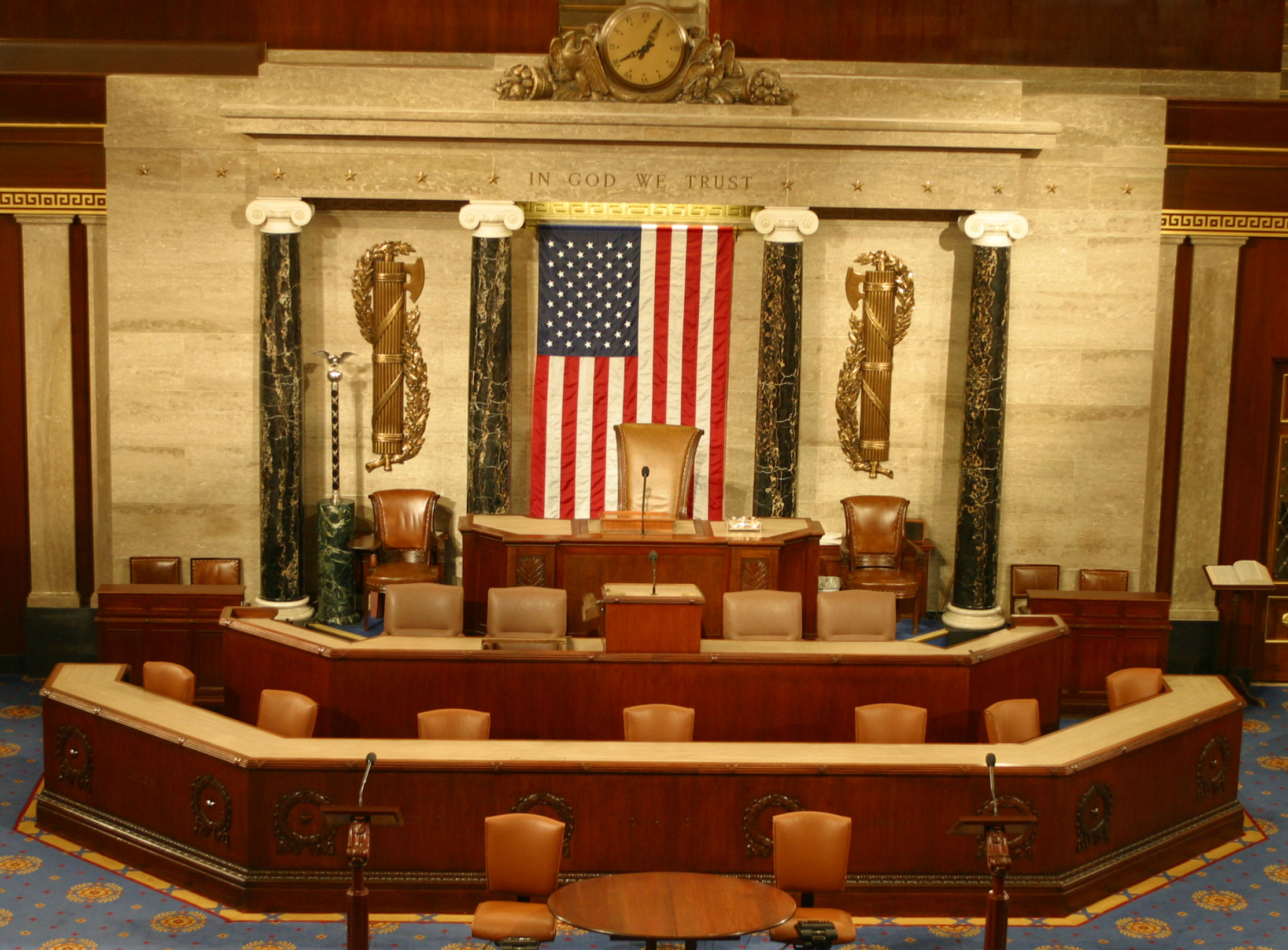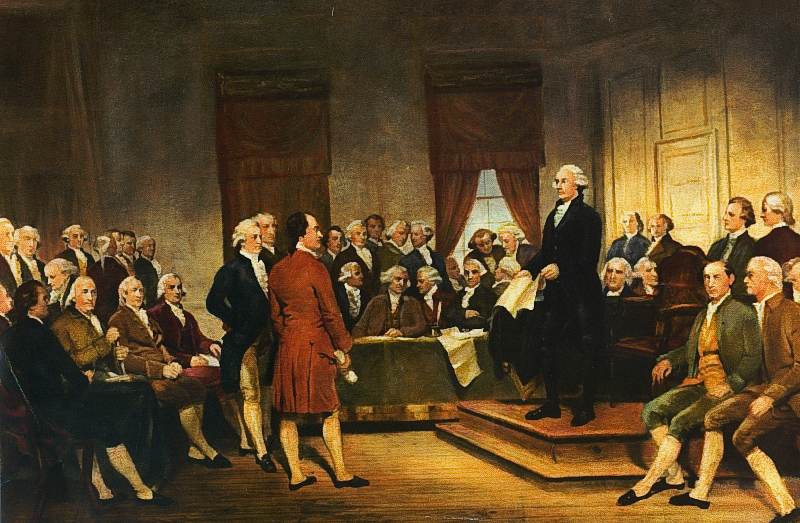GOP Senators Are Blowing It on Free Speech

Republican Senators are increasingly talking about the suppression of free speech on college campuses, but they refuse to actually do anything about it. We need real free speech protections in reauthorization of the Higher Education Act—protections that lead colleges to change their policies and threaten serious penalties if they don’t.
Earlier this year, the National Association of Scholars suggested one method, endorsed by more than 500 scholars and writers from across the country. We proposed that public colleges, which are already supposed to comply with the First Amendment, should lose Title IV federal student aid eligibility when they have unconstitutional free speech zones or restrictive speech codes. Congress should cease subsidizing this unconstitutional behavior.
Why?
Last December, the University of California Berkeley—once the epicenter of the free speech movement—settled a lawsuit for $70,000 after singling out one student group with stricter rules for inviting “high-profile” speakers.
That same month, some six hours south, Los Angeles Community College District settled another lawsuit for $225,000, after it prohibited a student from distributing Spanish-language copies of the U.S. Constitution outside its “free speech zone”—a space comprising 0.003 percent of campus.
Then there was Kellogg Community College in Michigan, which arrested two students for handing out copies of the Constitution on the sidewalk. It settled a lawsuit in January 2018 for $55,000.
These examples are included in a handful of the findings in Senate Resolution 233, introduced by Sen. Marsha Blackburn (R-Tenn) and cosponsored by 11 other Senators, including Tom Cotton, Ted Cruz, Josh Hawley, and Tim Scott. The Resolution is the Senate companion to House Resolution 191, introduced in March by Representative Phil Roe (R-Tenn).
Unfortunately, Blackburn’s Resolution functions better as a crib sheet of campus craziness than an actual solution to the free speech crisis. Senate Resolution 233 would do five things, none of them with any enforcement mechanism, and none of them particularly helpful.
First, it would put Congress on record as saying “free speech zones and restrictive speech codes are inherently at odds with the freedom of speech guaranteed by the First Amendment.” Fine, but the courts have already concluded this. No one is seriously in doubt about the constitutionality of free speech zones. The real question is: what will it take to get colleges and universities to take the Constitution seriously? A proclamation from Congress isn’t going to do it.
Second, Senate Resolution 233 recognizes that “institutions of higher education should facilitate and recommit themselves to protecting the free and open exchange of ideas.” True, and colleges and universities can always use another reminder. But federal law already recognizes the importance of open debate on campus. Blackburn’s resolution nearly quotes verbatim the Higher Education Act, in 20 USC 1011a, which declares the “sense of Congress” that “an institution of higher education should facilitate the free and open exchange of ideas.”
That section of the law has been on the books since 1998, and colleges have disregarded it with impunity because it never attached any consequences for violations. Senate Resolution 233 is no different: it’s a mere statement from Congress, not a call to action with consequences.
Third, the resolution adds another “sense of Congress” statement on the importance of free expression and free speech as “sacred ideals” that should be “vigorously safeguarded in a world increasingly hostile to democracy.” True—but how exactly does this resolution safeguard these sacred ideals? Absent better strictures, today’s desecrations have no end in sight.
The fourth and fifth pieces of Senate Resolution 233 come closest to adding an enforcement mechanism that could compel colleges to fulfill their Constitutional duties. But the Resolution shies away from setting consequences specific or serious enough to get the attention of colleges and universities.
Instead, it kicks the can over to the Secretary of Education and the Attorney General and politely “encourages” them to take action. The Secretary is given vague encouragement to “promote policies” that will “foster spirited debate, academic freedom, intellectual curiosity, and viewpoint diversity,” a standard administrators already run circles around. And the Attorney General is encouraged to “defend and protect the First Amendment across public colleges and universities.” This is, in effect, like telling your children to “please remember to eat your vegetables” without ever bothering to check if they do, or meting out consequences when they don’t.
The resolution merely reminds colleges to fulfill their current legal obligations, and reminds the heads of two federal agencies to take their jobs seriously, without specifying any consequences or specific strategies by which to promote free speech. But Title IV federal student aid already comes with a host of other guardrails meant to protect students from disreputable institutions. Colleges and universities that want access to federal money must be accredited, must not discriminate on the basis of race, and must comply with a labyrinth of Title IX regulations that have grown up around the ban on sex discrimination. Free speech is an even more fundamental feature of higher education. It, too, should be a criterion for Title IV eligibility.
Private colleges and universities are not subject to the First Amendment. But they, too, have a basic obligation to provide students with the free and open debate that is central to the purpose of higher education. Private institutions should make their speech and association policies fully transparent, so that students know what they’re signing up for before they enroll, and so that watchdogs can call institutions out for bad policies.
And they should become legally liable to enforce their own policies fairly—a crucial step for preventing a lenient application of the rules for, say, a Students for Justice in Palestine group while cracking down on a pro-life club.
Lamar Alexander, the chair of the Senate Health, Education, Labor, and Pensions Committee (HELP), might have taken leadership on this issue. But to date he has shown no interest in adding free speech protections to the Higher Education Act. Free speech appears nowhere on his higher education agenda. In fact, he has actually criticized President Trump’s executive order on campus free inquiry. Alexander, a former university president and Secretary of Education, is retiring in 2020 and apparently sees the Higher Education Act as part of his legacy. But what kind of legacy will he leave if the Higher Education Act be if it fails to address the free speech crisis, which is the central challenge facing colleges and universities today?
Doubtless, Marsha Blackburn has rightly reminded the Senate that free speech belongs on the higher education agenda. But her proposal should be only the start of a much longer conversation that leads to serious protections for free speech. As Alexander and the other members of the Senate HELP Committee draft the reauthorization text for the Higher Education Act, they need to listen to their constituents and an increasing majority of all Americans: it is essential to protect campus free speech. The Higher Education Act must not be reauthorized without doing so.
The American Mind presents a range of perspectives. Views are writers’ own and do not necessarily represent those of The Claremont Institute.
The American Mind is a publication of the Claremont Institute, a non-profit 501(c)(3) organization, dedicated to restoring the principles of the American Founding to their rightful, preeminent authority in our national life. Interested in supporting our work? Gifts to the Claremont Institute are tax-deductible.
Root, root, root for the electors. If they don't win it's a shame.
Part I: Unfettered reason cannot conserve anything.






